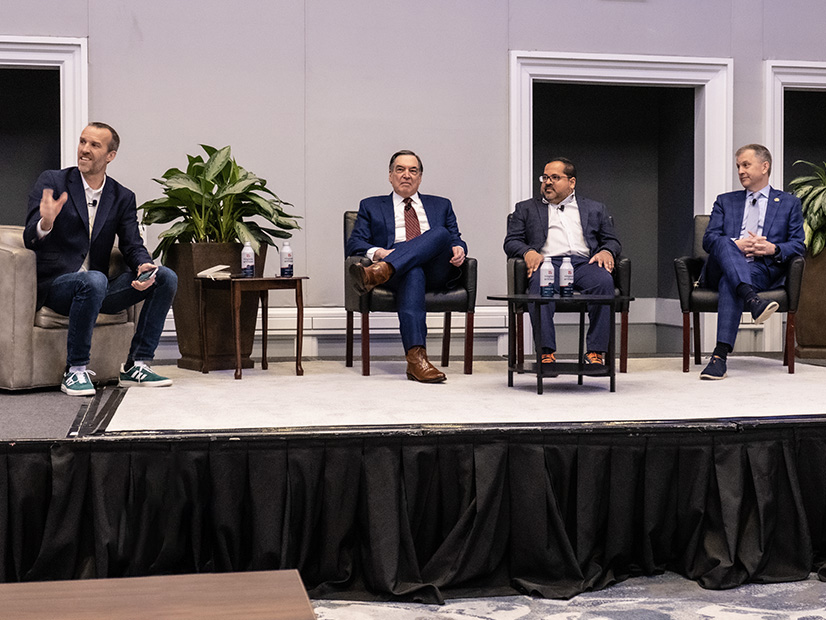Former Chairs, Rep. Casten Call for Bolder FERC
Agency Urged to Disregard Politics and Get Needed Work Done

From left: Voltus CEO Gregg Dixon, former FERC Chair Jon Wellinghoff, former FERC Chair Neil Chatterjee, and U.S. Rep. Sean Casten (D-Ill.) | © RTO Insider LLC
Apr 25, 2023
FERC has become too politicized and should use its independent authority to move the electricity industry forward, two former commission chairs said.


